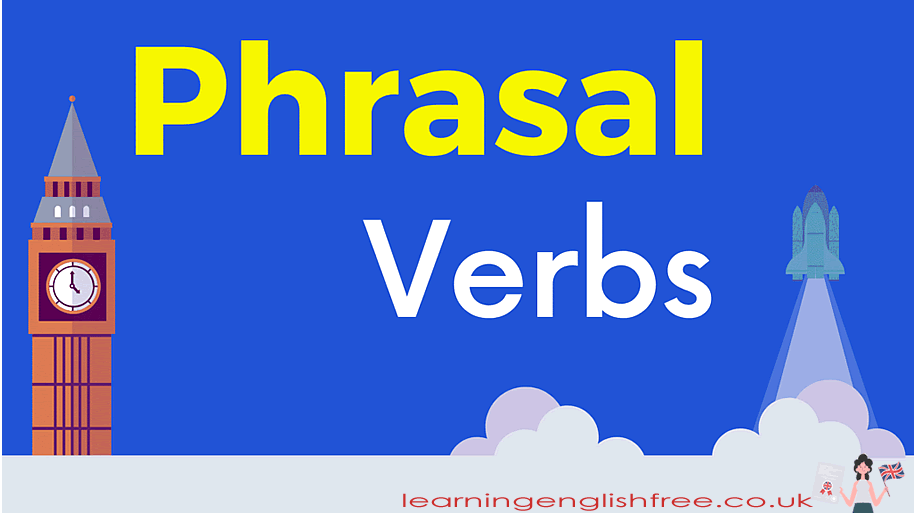
Conquering Phrasal Verbs: Mastering "C" Expressions in English
Introduction
Phrasal verbs, the intriguing yet challenging feature of the English language, consist of a verb paired with a preposition or adverb, creating a meaning different from the original verb. This lesson focuses on phrasal verbs starting with the letter 'C', an essential aspect of everyday English that can significantly enhance your fluency and comprehension. By the end of this exploration, you will have a deeper understanding and practical knowledge of these common expressions, enabling you to use them confidently in your conversations and writings.
-
Call off: To cancel something that has been scheduled.
- Example: The match was called off due to rain.
-
Call out: To publicly criticize or challenge someone.
- Example: She called him out for his unfair treatment of the team.
-
Carry on: To continue doing something.
- Example: Despite the interruptions, they carried on with the meeting.
-
Carry out: To execute or perform a task.
- Example: The team successfully carried out the project.
-
Catch up: To reach the same level or standard as someone else.
- Example: I need to catch up with my classmates in maths.
-
Check in: To register upon arrival, especially at a hotel or airport.
- Example: Please check in at the front desk when you arrive.
-
Check out: To leave a hotel after paying your bill; to investigate.
- Example: We need to check out by 11 AM. / Check out this new book I found.
-
Cheer up: To become happier or to make someone feel happier.
- Example: I bought her flowers to cheer her up.
-
Chew out: To scold someone harshly.
- Example: The manager chewed him out for being late.
-
Chill out: To relax completely.
- Example: Just chill out, everything will be fine.
-
Chip in: To contribute money or effort with others.
- Example: We all chipped in to buy the gift.
-
Clam up: To become silent or refuse to speak.
- Example: He clammed up when asked about his past.
-
Clean up: To tidy or clean a place.
- Example: We need to clean up the kitchen before they arrive.
-
Clear out: To remove items to make space; to leave a place.
- Example: It's time to clear out the old clothes from the wardrobe.
-
Climb down: To admit you were wrong or to reduce the intensity of a situation.
- Example: He had to climb down after his argument was proven incorrect.
-
Close down: To permanently stop operating, especially a business.
- Example: The shop closed down due to lack of customers.
-
Come across: To find something or meet someone by chance.
- Example: I came across an old diary in the attic.
-
Come by: To obtain something.
- Example: Good jobs are hard to come by these days.
-
Come up with: To think of an idea or plan.
- Example: She came up with a great idea for the party.
-
Count on: To rely or depend on someone or something.
- Example: You can always count on me for support.
-
Crack down on: To start dealing with someone or something much more strictly.
- Example: The police are cracking down on speeding.
-
Cross out: To draw a line through something written.
- Example: Please cross out the incorrect answer.
-
Curl up: To sit or lie in a position with legs close to the body.
- Example: She curled up with a book on the sofa.
-
Cut back on: To reduce the amount of something, especially expenditure.
- Example: We need to cut back on our spending.
-
Cut off: To stop providing something; to interrupt.
- Example: The water supply was cut off due to maintenance. / He was cut off while speaking.
-
Cut out: To remove part of something; to stop doing something.
- Example: Cut out the best picture from the magazine. / I've cut out junk food from my diet.
-
Call upon: To formally ask or invite someone to do something.
- Example: I call upon you to support this charity.
-
Catch on: To become popular or understood.
- Example: It took a while for the trend to catch on.
-
Cave in: To yield or submit under pressure.
- Example: The company finally caved into the demands of the workers.
-
Circle back: To return to a previous point or subject.
- Example: Let's circle back to the main topic of the meeting.
Each of these phrasal verbs beginning with 'C' offers a unique way to express actions and ideas, making your English more vivid and expressive. Practice using them in sentences, and your comfort and fluency with the language improve significantly. Remember, the key to mastering phrasal verbs is consistent practice and exposure to various contexts where they are used.
